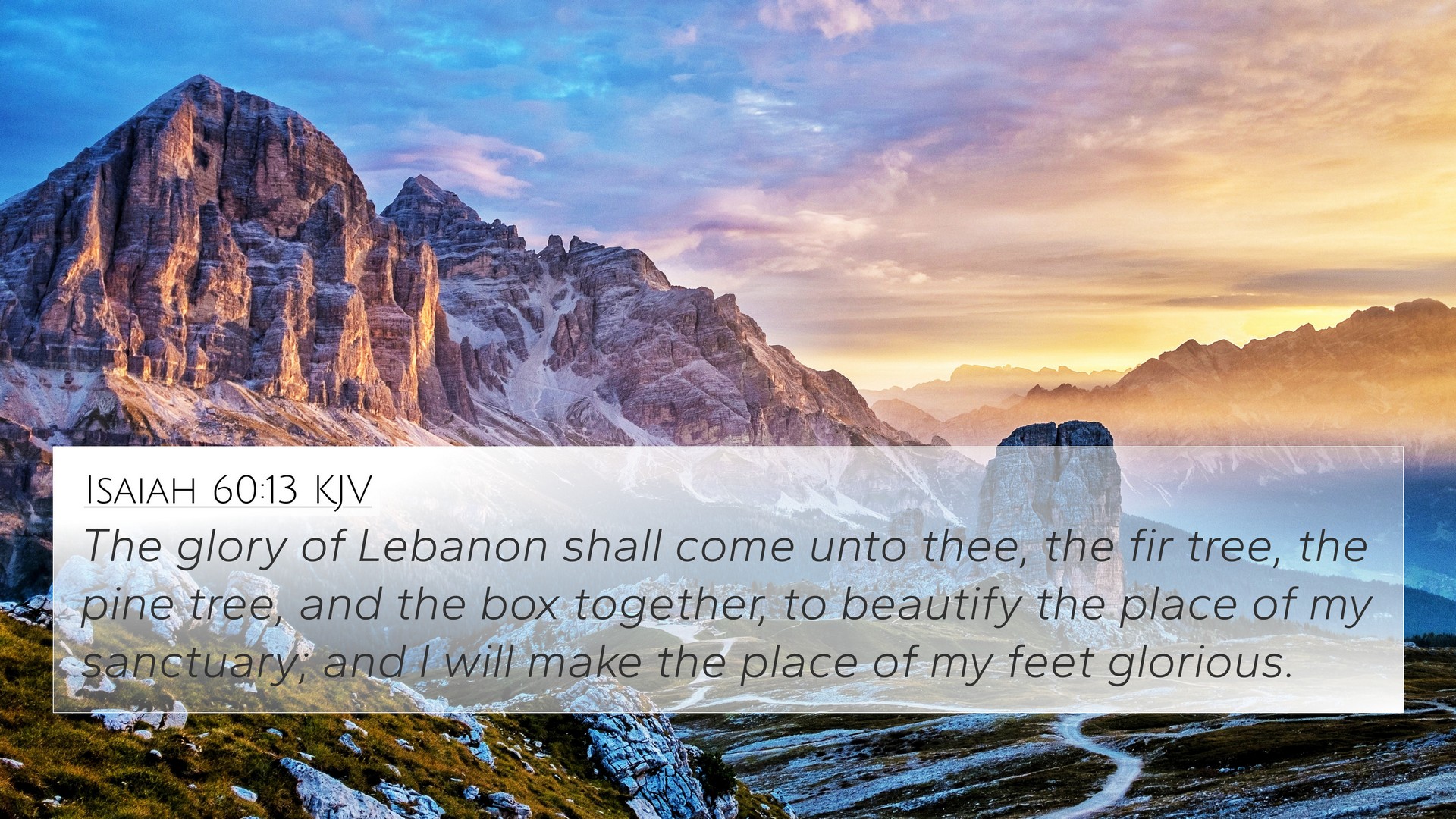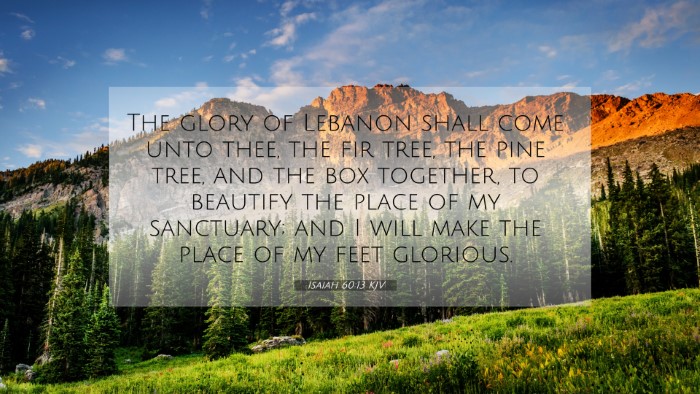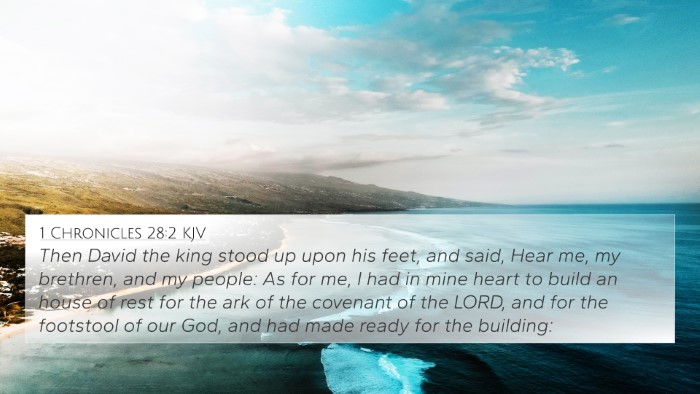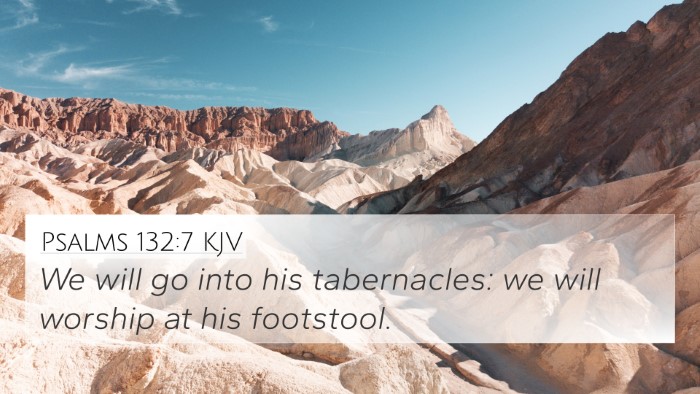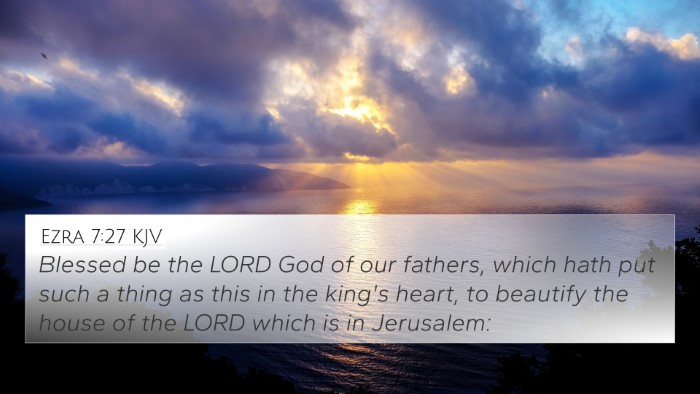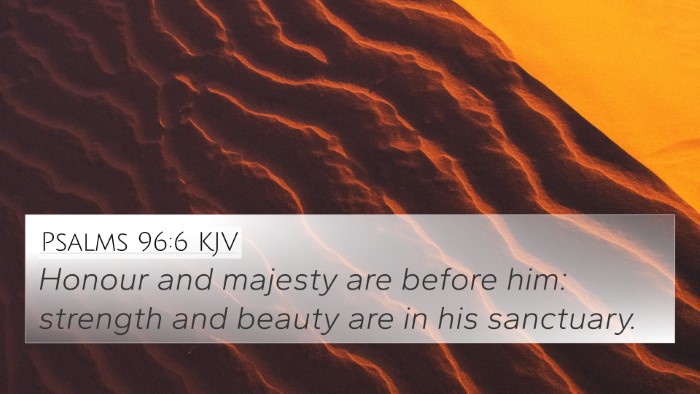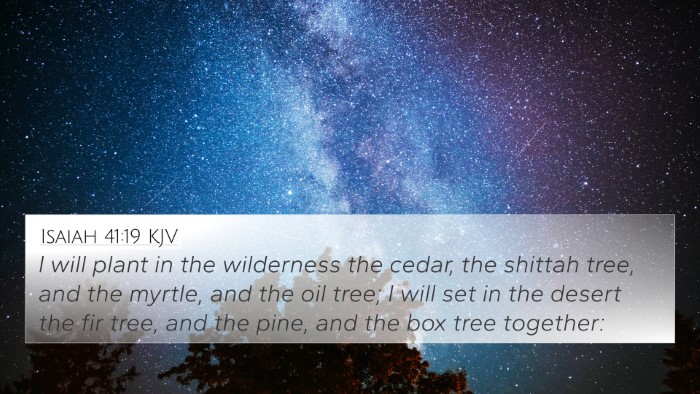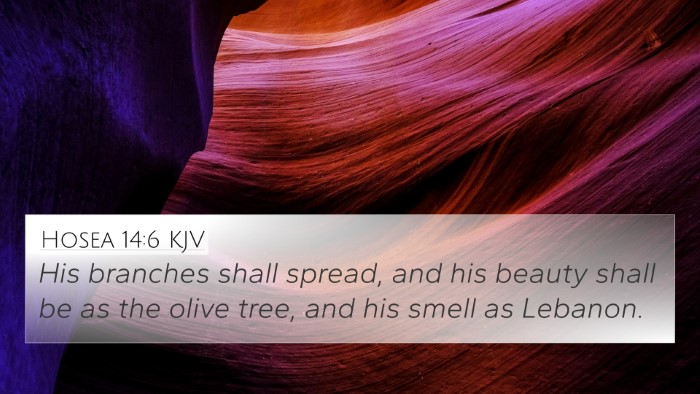Understanding Isaiah 60:13
Isaiah 60:13 states, "The glory of Lebanon shall come unto thee, the fir tree, the pine tree, and the box together, to beautify the place of my sanctuary; and I will make the place of my feet glorious." This verse is rich in meaning and significance, reflecting the restoration and glory of God's presence among His people.
Contextual Background
This verse is part of a larger section in the book of Isaiah where the prophet speaks about the future glory of Zion and the blessings that will flow to God's people. Isaiah prophesied during a time of impending judgment, but he also foretold redemption and restoration for Israel, emphasizing God's eternal covenant with them.
Commentary Insights
-
Matthew Henry:
Henry highlights that the mention of "the glory of Lebanon" symbolizes the splendor and richness that will be brought to Zion. The trees listed signify not only material wealth but also the beauty and majesty of creation that will glorify God’s sanctuary. He notes that God's presence transforms the ordinary into the extraordinary.
-
Albert Barnes:
Barnes discusses the imagery used in this verse. He interprets the fir, pine, and box trees as significant because they represent strength and durability. Their inclusion in beautifying the sanctuary indicates that God's glory will manifest through enduring and splendid creations, reflecting the prosperity that accompanies divine favor.
-
Adam Clarke:
Clarke adds that the "place of my feet" refers to the temple or the dwelling place of God among His people. The verse indicates a restoration of worship and the beauty of divine presence, suggesting that God will not only dwell among His people but will do so in a glorious fashion, worthy of reverence and admiration.
Key Themes and Connections
The themes in Isaiah 60:13 have profound implications in both the Old and New Testaments. Let's explore the connections and cross-references:
Cross-References
- Psalms 72:10-11: Prophecies regarding kings bringing gifts to God's people.
- Isaiah 2:2: The mountain of the Lord’s house established, drawing nations to it.
- Isaiah 35:2: The transformation of the wilderness into a glorious garden.
- Revelation 21:23: The glory of God illuminating the New Jerusalem.
- Malachi 1:11: Incense offered to God's name from the rising of the sun to its setting.
- Hebrews 9:24: Christ’s ministry in the heavenly sanctuary, emphasizing divine presence.
- 1 Peter 2:5: Believers as living stones being built into a spiritual house.
- John 17:24: Jesus' prayer for the glory shared with Him to be with believers.
- Matthew 5:14: Believers as lights of the world, reflecting God's glory.
- Ephesians 2:19-22: The church as a dwelling place for God through the Spirit.
Thematic Connections
Isaiah 60:13 emphasizes the idea of beauty as it relates to the dwelling of God among His people. The thematic connections are crucial in understanding how God desires to restore and beautify His sanctuary, paralleling the ultimate fulfillment found in the New Testament where believers are called to be a living temple.
Implications for Believers
This verse inspires believers to appreciate the beauty of God's presence and the sanctity of worship. It encourages the church to reflect on its role as a dwelling place for the Holy Spirit, thus inviting them to contribute to the beautification of spiritual worship environments.
Conclusion
Isaiah 60:13 offers profound insights into the theme of divine restoration and the beauty of God’s presence among His people. Through careful consideration of scholarly commentary and scriptural connections, we can appreciate the depth and richness of this verse, fostering a greater understanding of God's plans for His sanctuary both in the past and the present.
